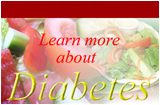High Blood Pressure Symptoms | Causes of Hypertension | Hypertension Medication
High Blood Pressure Symptoms>Causes of Hypertension
|
Causes of HypertensionHigh blood pressure is sometimes referred to as 'hypertension'. In fact the two terms are often interchangeable. Sometimes it is possible for a doctor to pinpoint the exact cause of a patient’s high blood pressure but very often, the cause or causes are not obvious. For that reason, most of the time, high blood pressure is referred to as 'essential' or 'primary' blood pressure or 'hypertension', meaning the cause is not easy to determine. 'Secondary hypertension' is another category of high blood pressure which is evidenced in approximately 10% of individuals suffering from high blood pressure. This is when the problem is easy to pinpoint and is linked to a particular medical condition or problem such as hormonal disorders, kidney disease or a variety of other diseases. It may even be the result of taking specific drugs. Once the problem is diagnosed and preventative steps are taken to correct it, the patient’s blood pressure usually returns to normal. Causes of Hypertension - what is hypertension/blood pressure ?Blood pressure is defined as 'the pressure of the blood against the walls of the arteries'. Blood pressure is created as a result of two separate forces. The one force comes about due to the action of the heart as it pumps blood throughout the circulatory system as well as into the arteries. The pressure on the arteries causes the other force as they resist the flow of blood. To explain blood pressure in simple terms, when the heart is pumping, blood is forced through the largest of the arteries and from there to and through the smaller arteries and finally to the arterioles. It is the job of the arterioles to either expand (in other words, dilate) or contract, and by so doing cause a change to the level of resistance to the flow of blood. This plays a role in both blood pressure and the quantity of blood flow. If contraction of the arterioles occurs, then blood flow resistance increases which in turn decreases the flow of blood and increases the level of blood pressure. On the other hand, if the arterioles dilate then the opposite occurs (resistance of blood flow goes down, blood flow goes up and blood pressure decreases). Changes that occur in the inner center of the arterioles are vital when it comes to both regulating blood flow as well as making an adequate blood pressure determination. If the arterioles remain in a constricted state for a long period of time, hypertension (or high blood pressure) can take place. Causes of Hypertension - risk factorsThere are a few risk factors that can increase your chances of falling victim to hypertension. These risk factors include family history age ethnicity stress obesity diabetes smoking excessive drinking Family History - hypertension tends to run in families. For example, if one of your parents has the problem then you have a one in five chance of developing it. If it applies to both your parents, then the risk rises to one in three. Age - your blood pressure tends to be lower when you are young and to rise, as you grow older. Approximately half of all men and women over the age of 65 suffer from hypertension.....read more about high blood pressure in the elderly Ethnicity - some ethic groups seem to be more likely to develop hypertension than others. Those most at risk include South Asians, Aboriginal Peoples (or Inuit), Black Canadians and First Nations. Stress - repetitive bouts of stress may play a role in the development of hypertension although stress is not a large risk factor when compared with others.....read more about stress and high blood pressure Obesity - statistics appear to indicate that excess weight has a big impact on the development of hypertension. This is not so true for those who are only 10 to 15 pounds overweight but it is true for those who are considered obese. Weight that piles up around the abdominal area seems to be even worse in terms of the development of hypertension. Diabetes - those suffering from diabetes are more likely to develop high blood pressure than members of the general population who do not suffer from this disease. Smoking - because smoking places a strain on the heart muscle and affects the flow of blood, smoking is consdiered to be a factor in the onset of hypertension. Excessive Drinking - constant stress is believed to encourage unhealthy lifestyle habits. Drinking heavily puts more strain on the heart thereby increasing blood pressure. Causes of Hypertension and the HeartEnsuring the blood pressure is kept at an optimal level is important, because if it is elevated for long periods at a time then it may cause long term organ damage, stroke and of course heart disease. Blood pressure is measured with a medical instrument known as a sphygmomanometer. Two measurements are derived from simple high blood pressure tests that involves no pain, just pressure applied to the arm by a rubber cuff that serves to compress a large artery stopping blood from flowing so measurements can be taken accurately. The two measurements are systolic pressure and diastolic pressure. Systolic pressure (which is the higher number of the two) represents the blood flow pressure reading that is taken when the heart beats (or is contracting as it pumps blood) while diastolic pressure (the lower number) is the blood pressure reading taken between individual heart beats (or the pressure when the heart takes time to relax between each heart beat). Blood pressure is measured by mmHg (or millimeters of mercury). The more difficult it is for the blood to flow through the arteries, the higher will both numbers be which is not good for the heart and the health of the patient. The blood pressure measurement always gives the systolic pressure first and the diastolic pressure second, such as 120/80 (or 120 over 80) with 120 being the systolic blood pressure and 80 being the diastolic. Hypertension (high blood pressure) is often described as being 'silent' and this is referring to the fact that there are very often no overt symptoms of an underlying problem. Unfortunately hypertension is a very serious medical condition that can double or even sometimes triple a person’s chances of developing, kidney disease, heart disease or a stroke. There is only one way to be sure what your blood pressure is safe and that is to have your blood pressure checked regularly by your doctor.
To learn more about Hypertension and the risk factors of Hypertension you can read more at: American Society of Hypertension, Inc. http://www.ash-us.org and Heart and Stroke Foundation website at http://ww2.heartandstroke.ca . More articles to read...... Latest high blood pressure bulletin news High blood
pressure © Copyright 2006 - 2013 www.high-bloodpressure.com - causes of hypertension |
High Blood Pressure Symptoms High Blood Pressure Physical Symptoms of High Blood Pressure High Blood Pressure Diet Causes of Hypertension Can anyone suffer from high blood pressure ? Stress and High Blood Pressure High Blood Pressure in the Elderly High Blood Pressure and Salt High Blood Pressure and Weak Respiratory Muscles Natural Remedies for High Blood Pressure Healthy Llife Changes Medication for High Blood Pressure Aspirin and High Blood Pressure Hypertension Medication HRT and High Blood Pressure Preeclampsia Pregnancy Induced Hypertension Pregnancy and Chronic Hypertension High Blood Pressure Tests Latest High Blood Pressure Bulletin News Resource Directory Alternative Medicine Resources Nutrition Resources Weight Loss Resources General Health & Fitness Resources Medical Disclaimer Privacy Policy Copyright Notice Website Agreement Various Health Related Sites Contact Us
www.high-bloodpressure.com


